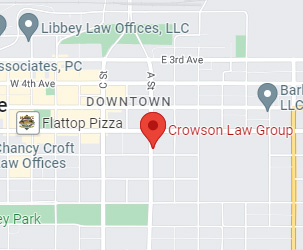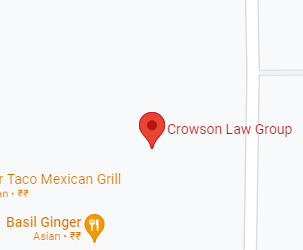Improper Settlement Tactics to Watch Out For

One major role of insurance adjusters is to protect their bottom lines by saving as much money as possible through unorthodox tactics. Although some adjusters work within the laid down rules and guidelines, others are just bad news. Having said that, you should involve an Alaska law firm when filing a claim with an insurance company.
So what should you do if an insurance adjuster uses unorthodox negotiating tactics in Alaska? Most people involve an Alaska law firm for legal counsel when engaging insurance companies or adjusters. Why? Lawyers (thanks to their training and experience) know the common tricks used by insurance adjusters against claimants–increasing the chances of a fair settlement.
Improper Negotiating Tactics Used by Adjusters
The following are some of the tactics used by insurance adjusters to deny, avoid, or reduce responsibility:
- Requesting Claimants to Settle with the Other Company
An adjuster might request claimants to seek compensation from insurers of other parties to the accident because they’re more at fault for the crash than the insured person. Always remember you can recover damages from all the parties to that accident. - Claiming that the Claim is delayed
When an accident is not immediately reported, an insurance adjuster can claim you’re your claim is invalid because reporting of the accident was delayed. However, filing a third-party claim has no time limit. The statute of limitations only comes into play in legal actions. If the adjuster uses the “delayed filing” tactic in a third-party claim, tell them that third-party claims can be filed at any time.
You might need to file a notice of the injury within a specified timeline when filing a claim with your insurance company. However, your insurer should honor your claim even if there was a delay in filing the notice of claim – except when the filing was so late that the insurance company couldn’t investigate the claim. The insurance company should prove how the delay interfered with the investigation process. - Factoring Other Payments when calculating Recoverable Damages
Insurance companies operate under the “collateral source rule” which prohibits insurance companies or adjusters to factor in other payments made to an insured person when calculating the recoverable damages. Such payments should not be a subject of discussion with an adjuster at all. The fact that you took precautions and purchased an insurance policy or health cover does not remove the obligation of the faulting party or their insurance company.
With that in mind, you should remind an adjuster that the collateral source rule prohibits them from questioning how you pay for the expenses related to the accident, such as medical bills, lost earnings, and others. If they keep asking such questions, report them to their superiors before taking the matter to the insurance department in your state.
Insurance companies use any underhand tactics to deny or avoid responsibility or reduce their clients’ settlement amount. Fortunately, you can avoid such hassles by involving a personal injury lawyer when engaging insurance companies or adjusters.


